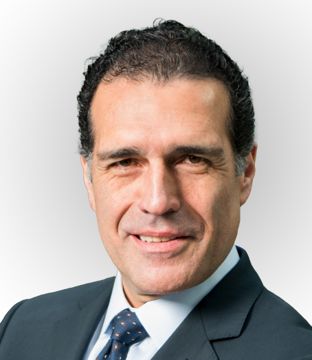of CEOs agree achieving gender equality in their C-suite will help them meet their growth ambitions
ESG’s impact
CEOs see the importance of ESG initiatives on their businesses, especially when questioned about ESG’s impact on improving financial performance, driving growth and meeting stakeholder expectations. And this year’s survey shows a marked jump in demand from stakeholders, such as customers and investors, for increased transparency.
CEOs believe that social and environmental priorities are key, they’re less convinced about making the connection between ESG programs and hard results. Only 16 percent of the CEOs believe that their ESG programs will improve financial performance as opposed to 68 percent of CEOs who believe that ESG programs may reduce financial performance of their companies.
CEOs increasingly understand that businesses embracing ESG are best able to secure talent, strengthen employee value proposition, attract loyal customers and raise capital. ESG has gone from a nice-to-have to integral to long-term financial success.
Changing regulations and other pressing economic matters are CEOs’ biggest challenges in delivering their ESG strategies. CEOs are also increasingly aware there is a lack of an accepted framework for measuring and disclosing ESG performance. While regulation concerns remain high, this may highlight how governments and regulators need to work together to align around ESG requirements.
Investments are forthcoming: Most of the CEOs say they will be looking to invest at least 6 percent of revenue in programs that enable their organization to become more sustainable.
Key drivers: CEOs find it difficult to pick just one key driver when it comes to accelerating their companies’ ESG strategies: proactivity on social issues (40 percent), more transparency (20 percent), IDE strategy (20 percent) and net-zero strategy (20 percent). This shows there’s a growing consensus that they all matter.
Articulating their story: The biggest challenge for CEOs in communicating their ESG performance to stakeholders is the struggle to articulate a compelling ESG story, which more than one-third (44 percent) say their organizations face
The downside of failing to meet ESG expectations
Source: KPMG 2022 CEO Outlook


Although environmental and social considerations have traditionally been considered economic externalities, therefore paid by society at large, it is no longer the case. As societies' preoccupation continues to raise awareness about climate, ecology, and human rights, companies will have to fully mainstream ESG considerations in business operations to enhance profits and in some cases, as a matter of survival. Qatar businesses’ competitiveness is strongly correlated with their progress towards making ESG a core priority.

Gonzalo Castro de la Mata' quote
Executive Director,
Earthna Center for a Sustainable Future, Qatar Foundation
Executive Director,
Earthna Center for a Sustainable Future, Qatar Foundation
A likely recession’s impact on ESG
As CEOs strive to maintain optimism and take steps to insulate their businesses from an upcoming recession, indicators point to ESG progress suffering as a result, following the trend of CEOs reassessing initiatives in many areas of the business (e.g. transformation and staffing). As economic uncertainty continues, 32 percent are pausing or reconsidering their existing or planned ESG efforts over the next 6 months, and 36 percent have already done so.
ESG has become an intrinsic business imperative. Delaying key ESG efforts could make businesses more reactive in the future rather than help them lead the way with greater transparency, resilience and sustainability.
Top 5 challenges in delivering ESG strategy over 3 years
Source: KPMG 2022 CEO Outlook
The ESG shadow cast by the supply chain
It’s critical for CEOs to understand how sustainable their entire business really is. CEOs increasingly see reporting and transparency as important to their ESG goals — and this includes insight into their broader supply chain.
Our survey shows that nearly one-quarter of CEOs (24 percent) plan to diversify their supply chains in the next 6 months in response to geopolitical challenges. Furthermore, the number one strategy that CEOs are considering to mitigate supply chain issues is to monitor deeper into their supply chain (i.e. at the third and fourth levels) to better anticipate problems. Why? Because the environmental, sustainability and human-rights practices of their partners and suppliers may impact their business and reputation.
Among the many challenges, decarbonizing the supply chain is a significant hurdle for companies looking to achieve net zero. Supply chain leaders are starting to double down on investing in technology — including real-time, end-to-end analytics, to improve visibility across the entire value chain. They will likely have a more accurate understanding of how products and materials flow through the network and where issues are in the supply chain, so they can move from mere strategic intent to real tangible outcomes.
CEOs are also making the link to digital transformation. 88 percent say their organizations’ digital and ESG strategic investments are inextricably linked. With CEOs increasingly accountable to their supply chains and reporting to broader stakeholders, their success is dependent on their digital systems. Where does the business source their raw materials? Do they know their suppliers’ human-rights records?
Multinational organizations need to focus more broadly on ESG, and into all the shadows cast by the organization.
of CEOs agree that their organization’s digital and ESG strategic investments are inextricably linked


CEO’s are aware that investing in ESG now will undoubtedly lead to long-term growth and the creation of shareholder value. However, in the short-term, they are still grappling with the mechanisms to increase transparency and reporting of their ESG activities to satisfy stakeholder expectations which will most likely be resolved as and when regulation and reporting requirements mature globally and in the local market.

Omar Mahmood
Partner, Head of Financial Service
KPMG in Middle East & South Asia
Partner, Head of Financial Service
KPMG in Middle East & South Asia
Diversity ramping up progress
Businesses are seeing major focus put on the social aspect of ESG. While there’s broad alignment on IDE, there is growing concern around the pace of progress. 44 percent of CEOs believe that progress on IDE has moved too slowly in the business world and 84 percent believe scrutiny of IDE performance will continue to increase over the next 3 years.
Awareness is key, and CEOs can play a powerful role in helping lead and drive the IDE agenda in the years ahead. Moving forward, it’s important to normalize IDE within companies to avoid fatigue. Any plans need to be intentional and focused on what’s possible within their market and business.
Diverse teams are also higher performing - but often only in environments of psychological safety. 80 percent of CEOs say they have a responsibility to drive greater social mobility in
their organizations, which involves how you invite everyone into and structure your organization. It requires that businesses invest in their people in a new way.
Ali Al-Shabibi, Partner at KPMG in Qatar, believes in taking the extra mile to make sure that the ideals of sustainability and ESG are thoroughly ingrained in the way we run our business.
“We see evidence that employees are favoring transparent, ethical and sustainable organizations to work for. As a result, investing in ESG initiatives can give organizations a competitive edge in the race for attracting and retaining the best talent. We believe that this could be the difference between thriving or gradual decline in the future.”


We see evidence that employees are favoring transparent, ethical and sustainable organizations to work for. As a result, investing in ESG initiatives can give organizations a competitive edge in the race for attracting and retaining the best talent. We believe that this could be the difference between thriving or gradual decline in the future.

Ali Al-Shabibi
Partner, Advisory
KPMG in Qatar
Partner, Advisory
KPMG in Qatar
Exploring opportunities for growth
- Recognize ESG’s impact on financial performance: ESG has become integral to long-term financial success. CEOs increasingly agree that ESG programs improve financial performance, which includes being able to secure talent, strengthen employee value proposition, attract loyal customers and raise capital.
- Invest in real-time technologies: CEOs should monitor deeper into their supply chain (i.e. at the third and fourth levels). Global supply chain leaders are starting to double down on investing in technology — including real-time, end-to-end analytics — to identify where issues exist and improve visibility across the entire value chain.
- Take the lead on IDE: CEOs can play a powerful role in helping lead and drive the IDE agenda in the years ahead. It's important to normalize and create a culture of IDE across the organization to attract and retain new employees.
- Build strong connections among functions: Resilient organizations have well-connected internal teams, so for example, the finance function is aware of what the ESG teams are doing.
